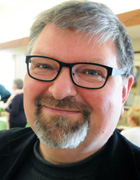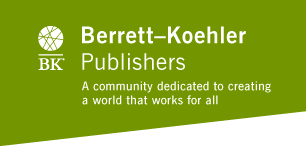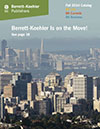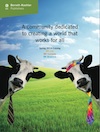About the Author

Paul Born
When founding the charity Tamarack Institute for Community Engagement in 2001 with philanthropist and business leader Alan Broadbent, Paul Born titled his first speech “Seeking the Possibilities of Community.” The title surprised even him, because he had been called on that day to talk about the technical process of change in cities and how community engagement and collaboration can lead to a larger collective impact. Even in those early days of the institute’s research— long before its work transformed how social issues like poverty were being addressed across the country, changing more than fifty government policies, supporting over two hundred social innovations, and reducing poverty for more than two hundred thousand people—Paul and his team understood that there was a direct correlation between people’s sense of community and their willingness to improve the conditions of those who lived around them.
In 1998, as Paul, who then directed the Community Opportunities Development Association (CODA), and his team were honored by the United Nations Human Settlements Programme as one of the forty Habitat best practices in the world, Nicholas You, who had flown in from Nairobi, Kenya, to present the award, stated, “We give you this award not only because you have reduced poverty for thousands of people, but more importantly because through your work you have created what will become known as a human problem solving machine [technique].” A technique that senior leaders at DuPont Canada and partners in Tamarack’s work later would call “community potentialization.”
Paul has always been fascinated by community. He grew up the son of refugees in a deep community of about one hundred families, all of whom had suffered the plight of mass starvation and had fled murder, rape, and oppression. As in many of the families in his community, both of his grandfathers had been executed at the hands of Stalin. Paul lived in fear as part of a people who came to Canada to heal, to start anew.
It is these experiences that drove Paul to write Deepening Community. In part, the process of deepening community is his journey to understand the possibilities of community in these chaotic times; it is also to explore how we might experience joy together in a world that seems to be unraveling. In all of his writing, speaking, and community work, Paul makes the case that living in joy together can help us transform our neighborhoods, our cities, our countries, and ultimately our world.
Paul is the author of four books, including the national bestseller Community Conversations, and founder of three national organizations. He is internationally recognized for his innovative approaches to community development. In 2013, Paul was elected to be a senior Ashoka Fellow, part of the world’s largest network of social innovators: “This Senior Fellowship distinction recognizes Paul’s significant contribution as an influencer and thought leader in the economic development sector.”
 0 items in cart
0 items in cart









